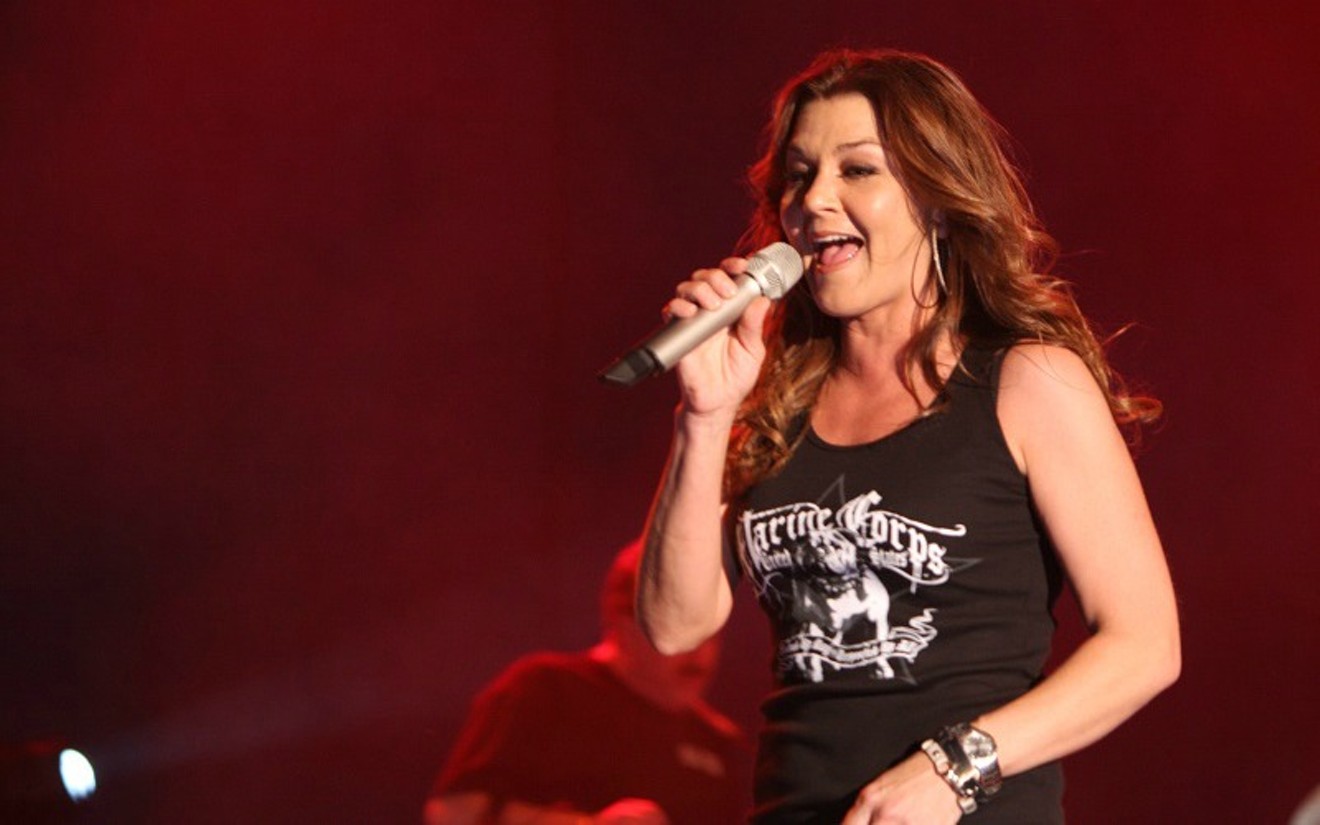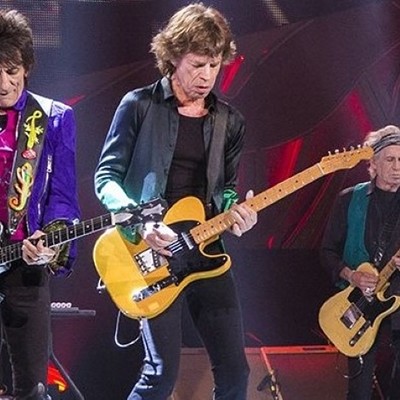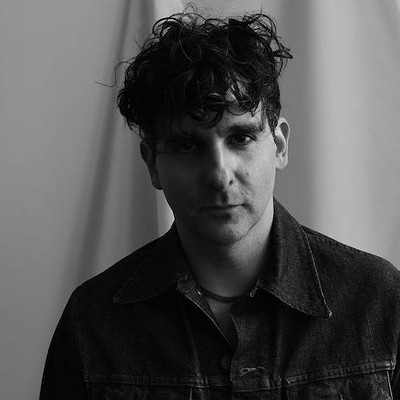With the release of "Redneck Woman" in 2004, Gretchen Wilson became the most delightfully trashy woman in country music. Few women before her had expressed so plainly an affinity for Walmart lingerie and honky-tonkin’. It was a flash in the pan, unfortunately, and Wilson’s rough-around-the-edges style was almost entirely replaced by, as she would say, a bunch of high-class broads.
And now, more than a decade after her first single went platinum, Wilson is plotting a comeback. At the end of last year, she released her new song “Rowdy,” which is a pretty logical extension of her earlier work. In a recent interview with The Boot’s Gayle Thompson, Wilson announced that she was working on a full-length album set for release later this summer. “I’m nervous, and I’m excited. I’m apprehensive, but I’m also willing; there’s probably a lot of words that I could come up with that describe how I feel," she said. “I think I feel like anybody would feel after having stepped away from something for a couple of years.”
Considering the battles that women in country music are still fighting, the arrival of a formidable ally like Gretchen Wilson couldn’t really have come at a better time. Miranda Lambert may have thanked all the “badass ladies” in Nashville who are making things happen in her ACM awards speech, but that doesn’t mean that those artists aren’t still having to fight tooth and nail for every piece of recognition.
That’s a battle that Wilson is familiar with, after more than a decade in the industry. Gretchen Wilson is the polar opposite of the women who have actually scrapped their way to the top, at least in terms of Nashville’s current makeup. She’s no Carrie Underwood, and even Miss "Gunpowder and Lead" herself, Miranda Lambert, offers a decidedly more polished alternative. Wilson is an everywoman whom fans in Middle America can really see themselves in. They feel like she understands their struggles much more than a couple of bubbly millionaire blonds, whether or not that characterization is actually fair.
For self-proclaimed rednecks, the fact that Gretchen Wilson took flak from a Tennessee lawmaker for whipping out a can of Skoal onstage as part of her performance of “Skoal Ring” is uniquely endearing. Where I grew up in East Texas, more than one woman I knew saw themselves in Wilson’s lyrics, because they’ve stood barefoot in their front yards with a baby or two on the hip and maybe enjoy getting rowdy at the honky-tonk on the weekends. Whether or not Wilson’s working-class ethos is appealing to snobbier fans, there is still a significant population of country music fans that are all but begging for tunes like “Rowdy.” This is an audience that deeply identifies with this bawdy, Jack Daniel's-soaked version of country music to its core. This segment of country music’s audience is so desperate to identify with their country music that they’ve made slicked-up impostors like Luke Bryan a very, very rich man.
There is an argument to be made that Wilson’s version of country music was really just proto bro-country. In “Redneck Woman” and “Here for the Party,” she manages to tick off a dizzying array of country music clichés and takes maybe a little too much advantage of the typical “trucks, beers and barstools” formula. Even “Rowdy,” which features a callback lyric to Wilson’s biggest hits, is probably not her best song to date. It isn’t necessarily even a good song, certainly not one that’s going to end up on the fancy critics’ “best of” lists at the end of the year. But it is a very different song, from a very different kind of artist, and that is, honestly, more important.
At this point, any deviation from Nashville’s overwhelming homogeneity is refreshing, even if it’s coming from a familiar voice. The true importance of Wilson’s comeback, though, is what it could mean for women artists who have struggled to find their place in a genre that has very rigorous standards for what it means to be a woman. For up-and-coming outlaw acts like Jaime Wyatt, a California-based artist who spent a little time in the pen before really launching her music career, the presence of an artist like Wilson could really make all the difference.
Let’s assume that Wilson’s forthcoming album is a commercial success, and maybe it will be. It’s not as if she hasn’t proven that she’s got an audience in the past. Whether or not country radio actually decides to play ball, it could mean that another woman like her in country ends up with a record deal. Or maybe it’s an independently released success that goes viral on the ol’ internets, or hell, maybe there’s the next big thing just waiting in the wings for someone like Gretchen Wilson to come along and make the way. That's an outcome that could have real, demonstrable benefits for the genre.
The return of Gretchen Wilson doesn’t promise any kind of feminist uprising in country music. That’s just not who she is. But whether or not you like her music or understand the appeal, there’s no denying that her brash authenticity is something that country music could desperately use a little more of. Assuming she stays away from the Confederate flags and any temptation to veer any harder into bro-country territory, the resurgence of Gretchen Wilson might be one of the year’s most exciting developments.
Support Us
Houston's independent source of
local news and culture
account
- Welcome,
Insider - Login
- My Account
- My Newsletters
- Contribute
- Contact Us
- Sign out

Gretchen Wilson performing in 2009
Photo by Margaret Clark Hughes, USMC/Wikimedia Commons
[
{
"name": "Related Stories / Support Us Combo",
"component": "11591218",
"insertPoint": "4",
"requiredCountToDisplay": "4"
},{
"name": "Air - Billboard - Inline Content",
"component": "11591214",
"insertPoint": "2/3",
"requiredCountToDisplay": "7"
},{
"name": "R1 - Beta - Mobile Only",
"component": "12287027",
"insertPoint": "8",
"requiredCountToDisplay": "8"
},{
"name": "Air - MediumRectangle - Inline Content - Mobile Display Size 2",
"component": "11591215",
"insertPoint": "12",
"requiredCountToDisplay": "12"
},{
"name": "Air - MediumRectangle - Inline Content - Mobile Display Size 2",
"component": "11591215",
"insertPoint": "4th",
"startingPoint": "16",
"requiredCountToDisplay": "12"
}
,{
"name": "RevContent - In Article",
"component": "12527128",
"insertPoint": "3/5",
"requiredCountToDisplay": "5"
}
]
KEEP THE HOUSTON PRESS FREE...
Since we started the Houston Press, it has been defined as the free, independent voice of Houston, and we'd like to keep it that way. With local media under siege, it's more important than ever for us to rally support behind funding our local journalism. You can help by participating in our "I Support" program, allowing us to keep offering readers access to our incisive coverage of local news, food and culture with no paywalls.
Trending Music
- How Much Longer Can Classic Rock Rule the Roost?
- Top 10 Butt-Rock Bands of All Time
- Houston Concert Watch 4/24: Rolling Stones, Bad Bunny and More
-
Sponsored Content From: [%sponsoredBy%]
[%title%]

Don't Miss Out
SIGN UP for the latest
Music
news, free stuff and more!
Become a member to support the independent voice of Houston
and help keep the future of the Houston Press FREE
Use of this website constitutes acceptance of our
terms of use,
our cookies policy, and our
privacy policy
The Houston Press may earn a portion of sales from products & services purchased through links on our site from our
affiliate partners.
©2024
Houston Press, LP. All rights reserved.





